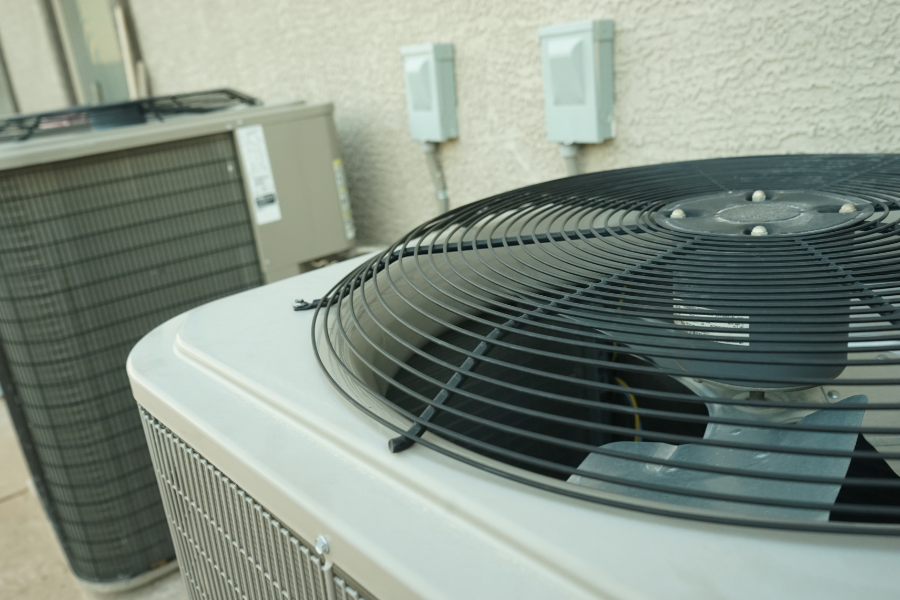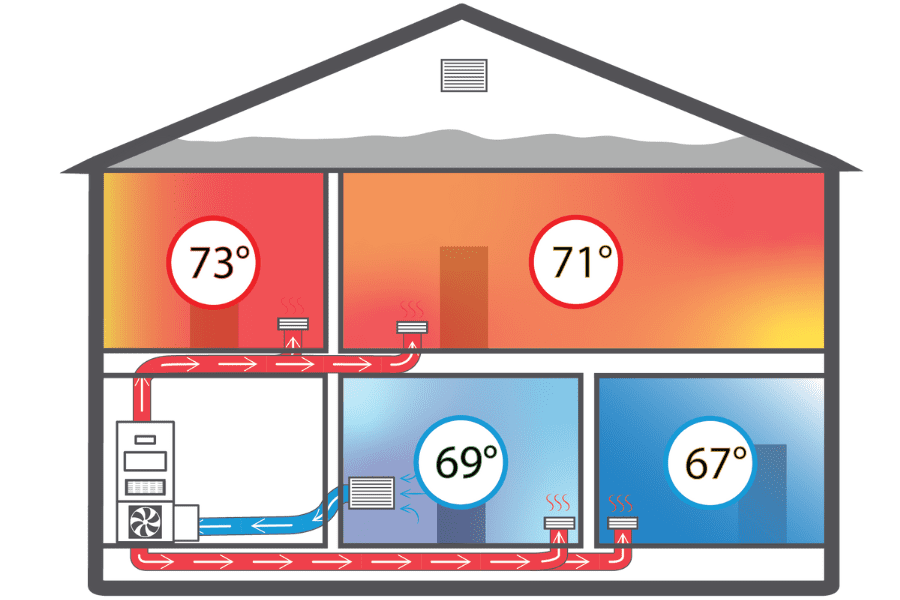Mar 6, 2023
Looking Ahead to Energy Codes in 2023: What’s On The Horizon?
From the 2021 and 2024 IECC to stretch codes to IRA and BIL funding, NEEP takes a look at all the big news in codes for the upcoming year.
By: Michael Rossi

This year is off to a busy start and shows no sign of slowing. NEEP partnered with a number of organizations and states on concept papers in response to U.S. DOE funding opportunity announcements (more on this later) for energy codes, and we anticipate some major exciting changes and updates.
In this blog, we’re going to look ahead to the new year, break down some predictions, and analyze anticipated changes across the Northeast and Mid-Atlantic region. From the 2021 and 2024 IECC to stretch codes to IRA and BIL funding, this blog takes a look at all the big news for the upcoming year in codes.
The 2024 International Energy Conservation Code (IECC) is Published
As of January 2023, the 2024 IECC Residential and Commercial drafts have undergone the first round of public comments, which their respective committees and subcommittees are reviewing. We anticipate another public comment period with an updated draft of the code in March. A final draft should be published in Fall 2023 or Winter 2024 and become available for consideration and adoption by states.
The 2024 IECC is taking major steps to decarbonize our building stock with electric readiness proposals and other exciting measures under consideration. For more information, check out our 2024 IECC Webpage.
More States Adopt the 2021 IECC
In 2022, both New Jersey and Connecticut adopted the 2021 IECC. In the new year, we anticipate more states will follow their lead.
There are several states that are proceeding with adoption of the 2021 IECC including Massachusetts, Vermont, Maine, Pennsylvania, Rhode Island, Delaware, Maryland, and the District of Columbia. We expect these discussions will move forward in 2023 and many of these states will adopt and make effective the 2021 IECC and ASHRAE 90.1-2019 energy code.
Last year, West Virginia adopted the 2015 IECC, New Hampshire adopted the 2018 IECC, and New York decided to skip the 2021 IECC in favor of adopting the 2024 IECC when it becomes available.
States Implement Stricter Stretch Codes of New Stretch Codes
Massachusetts Updated Energy Stretch Code and Municipal Opt-In Specialized Code has become available for residential buildings starting on January 1, and will become available for commercial buildings starting July 1. We anticipate municipalities across the state will start to vote on the Municipal Opt-In Specialized Code in town meetings and city councils throughout the year. The Municipal Opt-In Specialized Code has new requirements for “electric readiness” in mixed fuel buildings, meaning all equipment using fossil fuels must also be wired to accommodate future electric equipment for space and water heating, cooking, and clothes drying. This will remove the cost burden associated with rewiring for retrofits down the line.
Vermont also has an updated stretch code that will take effect in late 2023. Its code has provisions related to embodied carbon in insulation materials and is the first energy code in the region to consider the impact of global warming potential.
Maine’s current stretch code is the 2021 IECC. Since Maine moved to this code as its base code, the state will be adopting a new stretch code. NEEP contributes to the Maine Energy Technical Advisory Group (TAG) and attends all Maine Uniform Building and Energy Code (MUBEC) board meetings, so we will be keeping a close eye on developments and advising as appropriate.
We anticipate other states in the NEEP region will also update their stretch codes or create new ones.
Massachusetts Begins its Fossil Fuel-Free Pilot Program for 10 Municipalities
In 2022, the Massachusetts legislature passed An Act Driving Clean Energy and Offshore Wind, which includes a measure that requires – through zoning – that new construction projects or major renovation projects be “fossil fuel-free” for 10 municipalities in the state. This new pilot program will ban new gas hookups, which is a significant push toward building electrification. The program is likely to take effect sometime in 2023, and we anticipate more details and guidance about the program coming out soon.
Funding Available for the BIL and the IRA
The Bipartisan Infrastructure Law (BIL) provides $225 million in funding over five years to support adopting updated building codes, along with training and technical assistance for states and municipalities. Of this funding, $45 million will become available this year. Important topics that NEEP will target include (1) workforce development with a focus on growth and diversity within codes-related professions, (2) providing more educational resources and support for code adoption, implementation, and enforcement in rural communities, and (3) developing field studies for code compliance and future trainings.
In addition, the Inflation Reduction Act (IRA) offers $330 million in grants for states to adopt the latest building energy codes, which includes the IECC 2021 for residential and commercial buildings, and the American Society of Heating, Refrigerating, and Air Conditioning Engineers (ASHRAE) 90.1-2019 standard for commercial buildings. The IRA also offers $670 million for state adoption of stretch energy codes aimed at achieving net zero energy buildings, including the net zero appendices of the 2021 IECC. There is a public comment period for IRA funding that will run through the spring, with incentives becoming available later in the year. We will work with states to obtain funding and in designing programs and initiatives.
States Add Alternative Pathways to Code Compliance
With new federal funding coming from the BIL and IRA, states will likely adopt new alternative pathways to code compliance that are intended to maximize these incentives. The Department of Energy Zero Energy Ready Homes Program offers a $5,000 incentive for new homes that qualify for the program through the 45L Tax Credit, which may lead states to consider adding this pathway to qualify with their energy code. In addition, other above-code measures such as Passive House and Energy Star may also be considered.
Massachusetts recently added Passive House as an alternative compliance pathway to its Stretch Code and Municipal Opt-in Specialized Stretch Code. In addition, the Maine Energy TAG voted to consider both DOE Zero Energy Ready Homes and Passive House as alternative compliance pathways to their base code, a proposal that will be considered by the full MUBEC board in early 2023. We anticipate that other states will follow this trajectory and will add alternative compliance pathways to their codes.
This article originally appeared on the NEEP website and is republished with permission.





